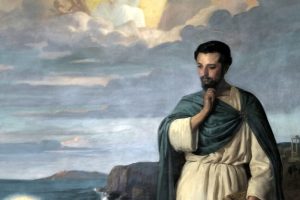Pope Francis, in Amoris Laetitia (On Love in the Family), spoke of marriage as an encounter, a union, and a sacrament in which Christ himself meets the couple, giving them the “strength to take up their crosses and so follow him, to rise again after they have fallen, to forgive one another, to bear one another’s burdens.”
It is a loving encounter—a dwelling place of God that deepens communion and fosters a culture of encounter. It is also a divine encounter, where the “communal demands of family life are an incentive to growth in openness of heart and thus to an ever fuller encounter with the Lord.” According to Francis, family is a “path which the Lord is using to lead [us] to the heights of mystical union.”
It was through my own marriage that I came to understand the power of love and encounter. When I was young, I dreamed of becoming a theoretical physicist, spending my days and nights in solitary study, far from worldly affairs, trying to solve the mystery of the universe. Marriage was not part of how I envisioned my future. I loved the world and felt irresistibly drawn to it.
My nascent passion for science was, at its first utterance, met with apathy, mockery, and rejection by those closest to me. “A Chinese girl studying physics will never find a husband, nor a job,” they said. Not yet a teenager, that stubborn girl quietly accepted her presumed fate. For the next half decade, I found consolation in pursuing my dream, even as I grew increasingly indifferent to the social world.
My encounter with Andrew disrupted everything I thought I knew. It was the beginning of a story of love and union, at once divine, human, and cosmic. It was an encounter between two people, two families, two nations, two histories—between East and West—where the two were becoming one flesh. This union led us into unexpected places and gave expression to the unity of the world, accomplished in God.
A year before I came to the United States to study science as part of an exchange program, I was assigned to pick up the American students of the same program at the airport. Following Chinese cultural customs, I approached Andrew, the person walking toward me, and helped him with his luggage. Over the next week, we took long walks around the university campus and had many conversations.
Our affection for each other grew. In broken English, I shared with him my passionate love for science. Perhaps because he was not Chinese, I felt safe in being candid. For the first time, my love was met with affirmation. In less than 10 days, we began dating. The news that I had a boyfriend for the first time—worse still, an American one—caused no small commotion in my family, whose reactions ranged from shock and concern to dismay and denial.
When I was growing up, my family’s constant criticism and disapproval, common to many Chinese families, caused me deep pain and left me with a general bitterness toward people. But things began to change after that encounter with Andrew. I came to realize that it was, in fact, an encounter with God, and the beginning of our transformation.
Soon after we met, a budding yet irresistible desire began flowering in the depth of my heart. I responded to God with my fiat, convinced that I had finally found what I was searching for: the mystery of the universe revealed in divine love. Then, and only then, was I able to say the three words for the first time in my life: “I love you.” That profession of love, made in absolute freedom, illuminated the whole world with wonder. Only in direct contact with God could I utter my love facing the countenance of another, my nearest neighbor, my first lover in human form.
The love kindled between us 15 years ago has grown into a living and unquenchable flame, ushering us toward a union in which is enfolded the “universe as a communion of subjects.” The years since that initial profession have been ones of relentless growth, filled with sheer joys and insurmountable darkness.
I came to this country first as an exchange student studying science and later enrolled in theological schools. During that time, Andrew and I married and entered the Catholic Church. In many ways, the past decade has been a decade of suffering—of coming to know not only my own suffering but that of the world and its catastrophic tragedy: the impoverished lives, the anguish of women, the poor, the marginalized, and the Earth. Yet it has also been a decade of encounters through which I was carried by the creative spirit of humanity and the Earth, and which affected, in the depth of my being, an ever-deepening openness to God and the world.
It was only through the encounter with my beloved that I entered into deep communion with the world, as a fulfillment of my childhood dream. Recognizing that the ultimate mystery of the universe is love, I am reminded of St. Thérèse of Lisieux, who proclaimed, “My vocation is Love!” Having dedicated an apostolic exhortation to St. Thérèse, Pope Francis’ vision of love carries a distinct Carmelite tenor. He repeatedly invoked the teaching of St. John of the Cross to describe the experience of mystical union with God. In the Carmelite tradition, such an experience is spiritual marriage.
Commenting on St. John of the Cross’s Spiritual Canticle, St. Edith Stein notes that spiritual marriage is the original and actual marriage—the archetype of human marriage. Thus, the end of marriage is union with God, who is Love. According to St. Teresa of Ávila, the fruit of spiritual marriage is good works.
Marriage, as a union of the flesh, returns us to God and to the immensity of creation by giving birth to solidarity and an attentiveness to the needs of our neighbor. Marriage, I’ve come to understand, is not the end of the story but the beginning of a lifelong unfolding of love: divine and human, ordinary and holy, rooted in the family we’re building together.
This article also appears in the November 2025 issue of U.S. Catholic (Vol. 90, No. 11, page 43-44). Click here to subscribe to the magazine.













Add comment